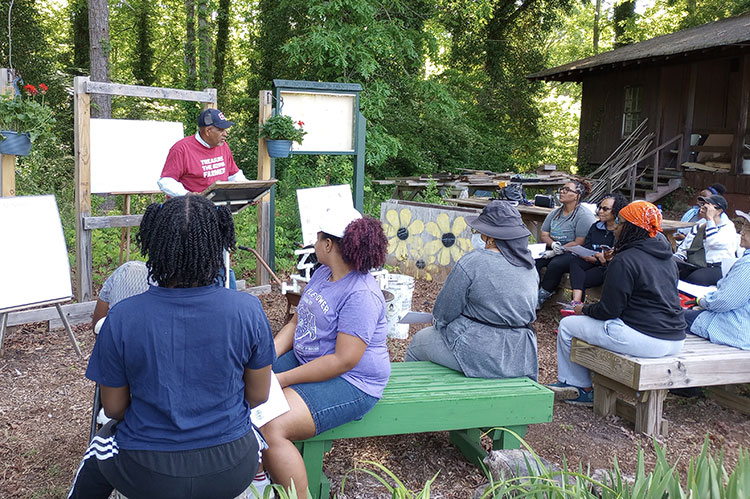By Sharon Omahen
University of Georgia
Driving too fast can get you a hefty fine. Watering your lawn during restricted hours or days can land you a big fine, too.
"You typically get two warnings. And the third time, you're fined," said Rose Mary Seymour, a water specialist with the University of Georgia College of Agricultural and Environmental Sciences.
Hitting where it hurts
"The fine can be up to $500," Seymour said. "The enforcement officers also have the power to turn off your access to public water." They can charge up to $5,000 to turn it back on.
Most local water purveyors don't have the work force to enforce the law alone, she said. They often have to rely on police officers and other government officials for help.
"The local water authority has jurisdiction over those who break the outdoor water-use rules," she said. "They also have the power to make the rules more stringent for their cities and counties."
To make sure water is available during daily peak hours, Fulton County has reduced the number of permitted hours for users north of the Chattahoochee River. Residents there must water between midnight and 5 a.m. Likewise, in Forsyth County, residents may water on only two days per week instead of three.
In Griffin, Ga., Brant Keller oversees the water usage for Spalding County, parts of Coweta County and the cities of Zebulon and Williamson as director of public works and utilities. Keller's staff also enforces the state's water codes.
Under his system, users get one warning for breaking the law. A second violation is cause for a fine.
"The fine can be up to $250. But the last time we issued a fine was 2002," he said. "Most of the fines we do issue are a result of one neighbor reporting another. We did give some warnings last year."
Levels of restriction
The state's water schedules are in response to Georgia's drought conditions. Developed by the Georgia Department of Natural Resources Environmental Protection Division, the state's outdoor water-use plan includes four levels. Level 1 is the least restrictive and level 4 the most.
Georgia is now using the level-2 outdoor water-use schedule. Outdoor water uses are allowed from midnight to 10 a.m. on Sundays, Tuesdays and Thursdays at odd-number addresses. They're allowed on Mondays, Wednesdays and Saturdays at even-number addresses. Outdoor watering is banned all day on Fridays.
Level 3 permits outdoor water uses only on Saturdays for even-numbered addresses and Sundays for odd-numbered addresses. Level 4 prohibits all residential outdoor water uses except watering personal food gardens.
Big Brother's watching
Keller knows his system's users obey the state's water schedule.
"We're getting our biggest surge of water usage during the times allotted for outdoor watering," he said. "From 10 a.m. to midnight, we produce as much water as we can. And everyone appears to be watering when they're supposed to."
His department is seen as a model across the nation, receiving many awards for water management and boasting an unusual reverse curve in water usage.
"A reverse curve," Keller said, "means instead of our water usage going up as our county grows, it goes down." That trend is the result of water conservation education and physical changes to the water system.
"Our residents learned a lot about conservation by living through the drought of 2002," he said. "They also began looking at water as a premium product instead of a commodity when we raised our water rates 25 percent in 2002 and another 25 percent in 2004."
Reclaiming loss
Keller stopped water losses of 10 percent, too, by replacing the system's leaky water meters.
"We were using 7 million gallons a day, and now we're using 6.3 million," he said. "We're in the customer service business, and my goal is to make sure my customers always have a supply of water."






